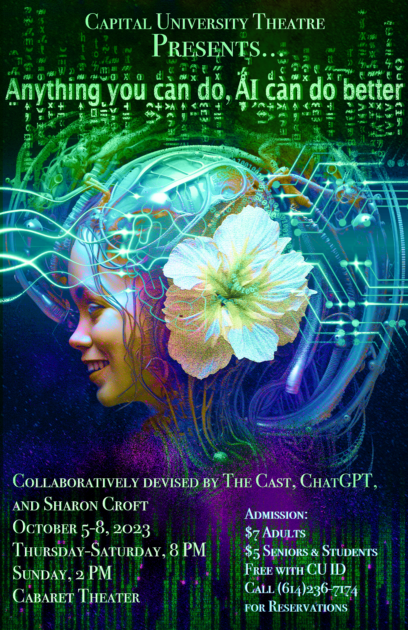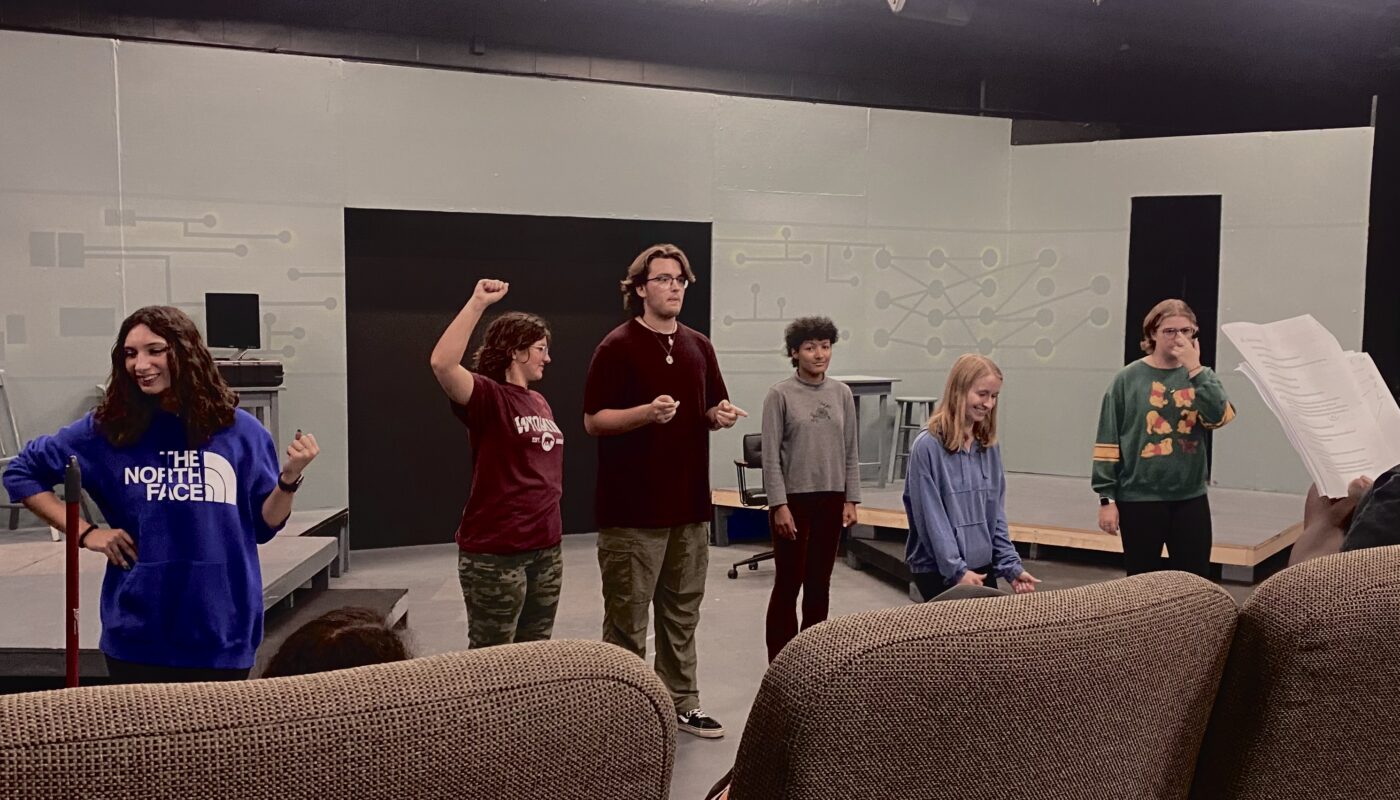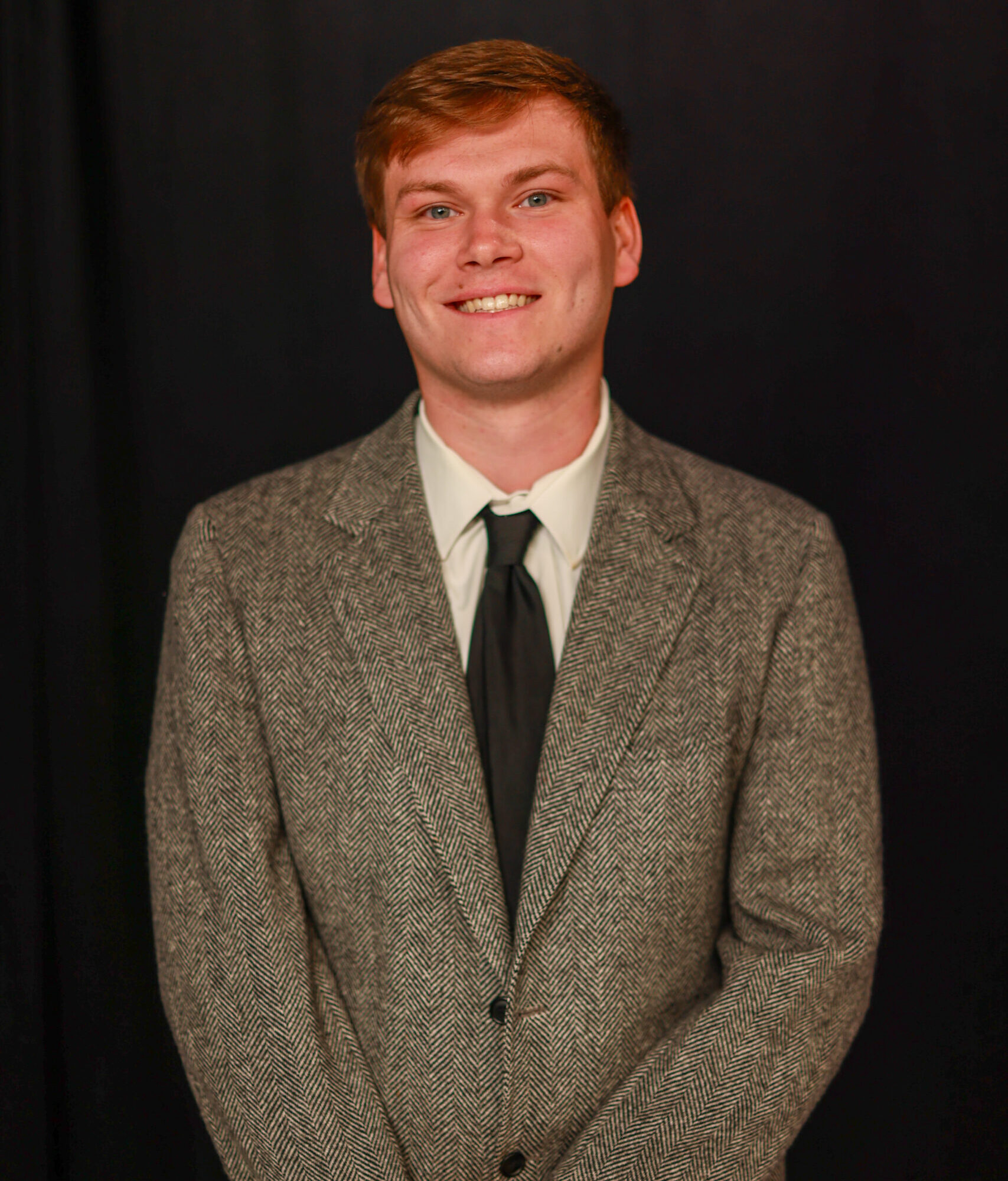The upcoming play put on by the university’s theatre department consists of several short scenes in a vignette fashion, similar to plays like “Almost Maine” and “Love and Information.”
However, there is a major detail about this play that is unlike any other: it was almost entirely generated by artificial intelligence (AI).
The play is titled “Anything You Can Do, AI Can Do Better,” a take on the Irving Berlin show tune “Anything You Can Do (I Can Do Better),” and explores both the positive and negative effects of AI.
As the show’s poster indicates, it was collaboratively devised by the cast, ChatGPT and Sharon Croft, one the university’s theatre directors.

“We all worked to write, design, block and act in every part of the show,” said first-year student Charlotte Emigh. “The first day, we all sat in a classroom and [Sharon] introduced us to the different programs we’d be using. We tried ChatGPT. We tried something called Pi.ai, and then we tried Claude as well. She had us give it different prompts and try to see the different outcomes it would give us just learning how to interact with it. . . and we kind of built from there.”
First-year student Alayna Blanchard said, “We would ask AI to write us a block where five speakers are going two sentences at a time, but no one speaks right after each other, and so it’s all even.”
While the show is quite different in the sense that it was created by AI, there are a few similarities. “[It’s] definitely similar in the fact that it’s a play,” said third-year student Michelle Costell.
“We did a little bit of a similar show last year, where it was more a collection of scenes versus one storyline throughout the whole show, so that’s been unique to have it staged as separate little moments. . .” added third-year student Madison Breyley.
Their rehearsal process has remained similar to other shows. The cast starts off by stretching, doing breathing exercises, tongue twisters and simple physical warm ups to make their rehearsal as productive as possible. Following this, they reviewed the choreography of a dance sequence in the show, then went straight into a run through.
The main differences in the show occurred in the very beginning of the show’s rehearsals and the overall content of the play.
“It’s different because it wasn’t already written down in a script beforehand, so we didn’t get our script when we first got here for rehearsals. We just got our script last week, and we perform in two weeks, so it’s a very quick turnaround time for memorization and blocking, so I think that’s the biggest difference,” Costell stated.
Breyley added, “I personally have never done anything so connected to technology, so that’s been new, learning about how the AI stuff works as well.”
The common concern about AI is that it will replace human writers in the near future, but the cast seems to believe there is something special about plays that AI could never fully replicate.
“I don’t think that AI will ever replace playwrights. I think that it’ll be cooler to see people collaborating with it more, but I think there’s such genuine connection. . . Humans can give writing a more genuine experience than an AI ever could. . .” said Emigh.
Similarly, Blanchard stated, “I think in our present age, it’s not likely that AI could replace writers and playwrights because where AI stands right now, it can’t develop a full story that’s 90 minutes long, and keep accurate to its facts.”
This performance will be an evaluation to see if AI will really be able to take over the written and performing arts. “Anything You Can Do, AI Can Do Better” opens on Thursday, Oct. 5 and runs through Sunday, Oct. 8.


